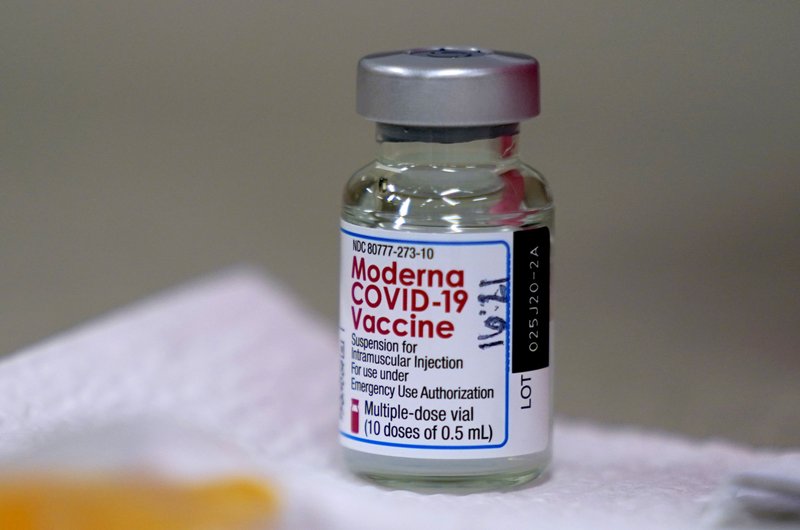(Aljazeera): After months of costly shutdowns, closed borders and curtailed personal freedoms, the concept of vaccine passports is gaining traction with governments eager to plot their path through the next phase of the COVID-19 pandemic.
A number of countries, including Bahrain and China, have already rolled out their own forms of certification ostensibly intended to ease future international travel or revive activity in hard-hit sectors of economies, such as hospitality.
Several others are weighing whether to follow suit and embrace the idea of documentation for those who have been vaccinated against the novel coronavirus.
Sceptics, meanwhile, warn a slew of possible wide-ranging adverse effects still needs to be addressed.
What is a vaccine passport?
A vaccine passport can broadly be defined as a piece of documentation proving someone has been inoculated against a virus – in this instance, SARS-CoV-2, otherwise known as the novel coronavirus.
It could take the form of a signed and stamped certificate or a Quick Response (QR) code stored on a smartphone.
The documents could become required for a range of activities from international travel to gaining entry to theatres and restaurants, Dave Archard, chair of the United Kingdom’s Nuffield Council on Bioethics, told Al Jazeera.
Proof of vaccination could also become a “discriminatory” condition of employment, he warned, or lead to a “two-tier society” in which people need documentation to exercise certain social liberties, such as accessing public spaces or travelling internally within countries.
Why are they being discussed?
With mass COVID-19 vaccination drives proceeding at pace in several countries, vaccine passports have risen to prominence as a potential tool for safely reopening borders for international travel and boosting economic sectors devastated by stringent lockdown restrictions.
In theory, the ability to show proof of vaccination could offer a turning point in the pandemic, enabling countries to welcome vaccinated visitors en masse and hard-hit businesses – particularly those operating in hospitality – to resume trading without fear of the virus.
In reality, however, there are outstanding questions about how any such documents would work in practice and pressing concerns about their potential to exacerbate inequalities, erode privacies, and possibly even hamper efforts to curb COVID-19.
Where, and how, are they being used?
Several countries have already rolled out their own versions of vaccine passports or certificates, despite a lack of global consensus on their use.
Israel, for example, has rolled out a government-validated certificate, known as a Green Pass, which allows people to show proof they have been vaccinated against or recovered from COVID-19, and therefore have presumed immunity.
The passes, which can be printed or stored on a smartphone, are valid for six months from the point of full vaccination. They permit holders to take part in a range of otherwise-restricted activities such as going to the gym, dining in restaurants or attending a theatre performance, albeit with some limits.
The certificate could also allow holders to travel overseas and bypass quarantine requirements. Israel has already signed an accord with Greece and Cyprus which allows citizens with COVID-19 vaccination certificates to travel unimpeded between the three countries.
China, too, has introduced its own form of vaccine passport in the shape of a certificate that shows a person’s vaccination status and COVID-19 test results.
It is envisaged as a digital product but is also available in paper form and is being rolled out “to help promote world economic recovery and facilitate cross-border travel”, according to the country’s foreign ministry.
Bahrain has launched a similar product, while Denmark and Sweden are readying to roll out their own certification schemes. The European Union is considering a bloc-wide digital certificate providing proof of vaccination, which could ease travel for Europeans in the upcoming warmer months.
What are the benefits and risks?
Advocates of vaccine passports argue they can be used to help safely resume mass international travel and unlock frozen economies.
Effectively, by proving someone has been vaccinated against or recovered from COVID-19, vaccine passports in theory signal an individual is not a potential vector for the virus or at risk from it themselves.
“They say, you are no longer a danger, and that gives you certain privileges that you wouldn’t have if you are a danger. So having vaccine passports makes sense from that perspective,” US-based Nobel Prize-winning economist Joseph Stiglitz told Al Jazeera.
“But unless we are able to make sure that there is access to vaccines for everybody, it introduces an important inequity.”
Stiglitz’s caveat is one of the most pressing concerns raised by those sceptical of vaccine passports – namely that the gaping global inequity in access to doses means any rollout of certification would, in turn, unfairly discriminate against those people in nations with fewer vaccine supplies.
Even if doses become available more evenly on a global scale, the current array of vaccines being used, and their differing efficacy rates, meanwhile reduces the prospect of any sort of uniform certification being created, Danny Altmann, a professor of immunology at Imperial College London, told Al Jazeera.
“We have billions of people who’ve variably had access to no vaccine, or vaccines in different countries that have vastly different immunogenicity and [have been] tested in markedly different antibody tests. How can this make a one size fits all international system of documentation?” he said.
